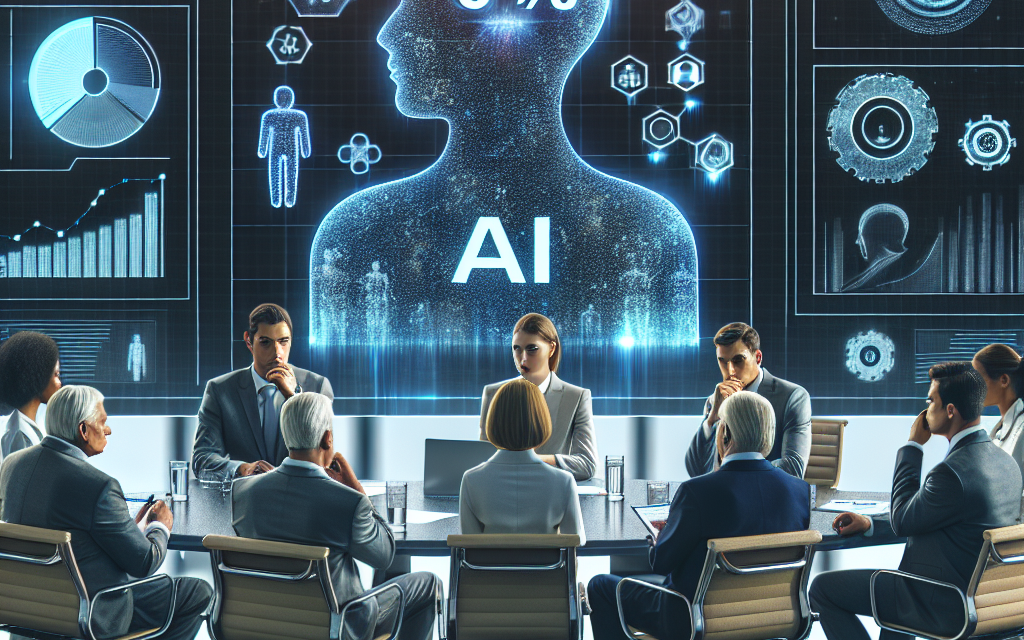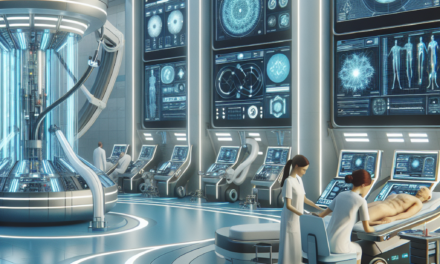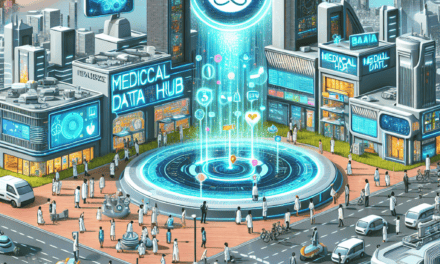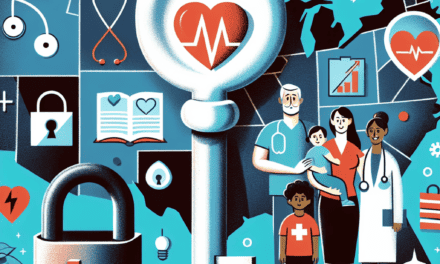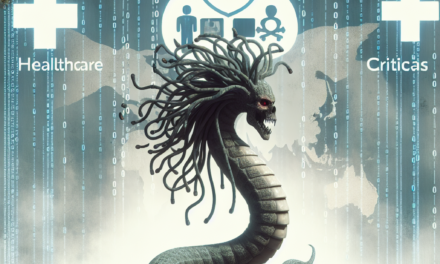Over 80% of Healthcare C-Suites Testing GenAI in Pre-Production, According to Accenture
The healthcare industry is undergoing a significant transformation, driven by technological advancements and the increasing need for efficiency and improved patient outcomes. One of the most promising developments in this space is the rise of Generative Artificial Intelligence (GenAI). According to a recent report by Accenture, over 80% of healthcare C-suite executives are currently testing GenAI in pre-production environments. This article delves into the implications of this trend, exploring the motivations behind the adoption of GenAI, its applications in healthcare, challenges faced, and future prospects.
Understanding Generative AI in Healthcare
Generative AI refers to algorithms that can generate new content, including text, images, and even complex data structures, based on the input they receive. In healthcare, GenAI can be utilized for various applications, from enhancing patient care to streamlining administrative processes.
One of the key drivers behind the adoption of GenAI in healthcare is the need for personalized medicine. By analyzing vast amounts of patient data, GenAI can help healthcare providers tailor treatments to individual patients, improving outcomes and reducing costs. Additionally, GenAI can assist in drug discovery, enabling researchers to simulate how new compounds will interact with biological systems, thus accelerating the development of new therapies.
Moreover, GenAI can enhance operational efficiency by automating routine tasks, such as scheduling appointments and managing patient records. This allows healthcare professionals to focus more on patient care rather than administrative burdens.
Motivations Behind the Adoption of GenAI
The motivations for healthcare C-suites to explore GenAI are multifaceted. Here are some of the primary reasons driving this trend:
- Cost Reduction: Healthcare organizations are under constant pressure to reduce costs while maintaining high-quality care. GenAI can help streamline operations, reduce waste, and optimize resource allocation.
- Improved Patient Outcomes: By leveraging GenAI for personalized treatment plans and predictive analytics, healthcare providers can enhance patient outcomes and satisfaction.
- Data Utilization: The healthcare sector generates vast amounts of data. GenAI can help organizations make sense of this data, turning it into actionable insights that can inform decision-making.
- Competitive Advantage: As more organizations adopt GenAI, those that do not may find themselves at a competitive disadvantage. Early adopters can differentiate themselves by offering innovative services and improved patient experiences.
- Regulatory Compliance: With increasing regulatory scrutiny, GenAI can assist healthcare organizations in ensuring compliance with various laws and regulations by automating reporting and documentation processes.
These motivations highlight the strategic importance of GenAI in the healthcare sector, prompting C-suite executives to invest in its exploration and implementation.
Applications of GenAI in Healthcare
The applications of GenAI in healthcare are vast and varied. Here are some of the most promising areas where GenAI is making an impact:
- Clinical Decision Support: GenAI can analyze patient data and provide recommendations to healthcare providers, aiding in diagnosis and treatment planning.
- Drug Discovery: By simulating molecular interactions, GenAI can accelerate the drug discovery process, identifying potential candidates for further research.
- Patient Engagement: Chatbots powered by GenAI can provide patients with information, answer questions, and assist with appointment scheduling, enhancing the overall patient experience.
- Predictive Analytics: GenAI can analyze historical data to predict patient outcomes, helping healthcare providers identify at-risk patients and intervene early.
- Medical Imaging: GenAI algorithms can assist radiologists in interpreting medical images, improving accuracy and reducing the time required for analysis.
Each of these applications demonstrates the potential of GenAI to transform various aspects of healthcare, ultimately leading to better patient care and operational efficiency.
Challenges in Implementing GenAI
Despite the promising potential of GenAI, healthcare organizations face several challenges in its implementation. Understanding these challenges is crucial for C-suite executives as they navigate the complexities of integrating new technologies into their operations.
- Data Privacy and Security: The healthcare sector is highly regulated, and patient data is sensitive. Ensuring the privacy and security of this data while using GenAI is a significant concern.
- Integration with Existing Systems: Many healthcare organizations rely on legacy systems that may not be compatible with new GenAI technologies. Integrating these systems can be complex and costly.
- Skill Gaps: There is a shortage of professionals with the necessary skills to implement and manage GenAI technologies. Organizations may need to invest in training or hire new talent.
- Regulatory Compliance: Navigating the regulatory landscape surrounding AI in healthcare can be challenging. Organizations must ensure that their use of GenAI complies with all relevant laws and guidelines.
- Ethical Considerations: The use of AI in healthcare raises ethical questions, particularly regarding bias in algorithms and the potential for dehumanizing patient care. Organizations must address these concerns proactively.
Addressing these challenges requires a strategic approach, including collaboration with technology partners, investment in training, and a commitment to ethical practices.
The Future of GenAI in Healthcare
The future of GenAI in healthcare is bright, with numerous opportunities for innovation and improvement. As technology continues to evolve, we can expect to see several trends emerge:
- Increased Personalization: GenAI will enable even greater levels of personalization in patient care, tailoring treatments to individual needs based on genetic, environmental, and lifestyle factors.
- Enhanced Collaboration: Healthcare providers will increasingly collaborate with technology companies to develop and implement GenAI solutions, fostering innovation and improving patient care.
- Real-Time Analytics: The ability to analyze data in real-time will become more prevalent, allowing healthcare providers to make informed decisions quickly and efficiently.
- Expansion of Telehealth: GenAI will play a crucial role in enhancing telehealth services, providing patients with access to care from the comfort of their homes.
- Focus on Mental Health: GenAI applications will increasingly address mental health issues, providing support and resources to patients in need.
These trends indicate that GenAI will continue to shape the future of healthcare, driving improvements in patient care, operational efficiency, and overall health outcomes.
Conclusion
The adoption of Generative AI in healthcare is not just a trend; it represents a fundamental shift in how healthcare organizations operate and deliver care. With over 80% of healthcare C-suites testing GenAI in pre-production, it is clear that the industry recognizes the potential benefits of this technology.
From improving patient outcomes to streamlining operations, the applications of GenAI are vast and varied. However, organizations must also navigate the challenges associated with implementation, including data privacy, integration with existing systems, and ethical considerations.
As we look to the future, the potential for GenAI to transform healthcare is immense. By embracing this technology, healthcare organizations can position themselves for success in an increasingly competitive landscape, ultimately leading to better care for patients and improved operational efficiency.
In summary, the journey towards integrating GenAI into healthcare is just beginning, and the insights gained from early adopters will pave the way for broader implementation across the industry. The future of healthcare is here, and it is powered by Generative AI.

